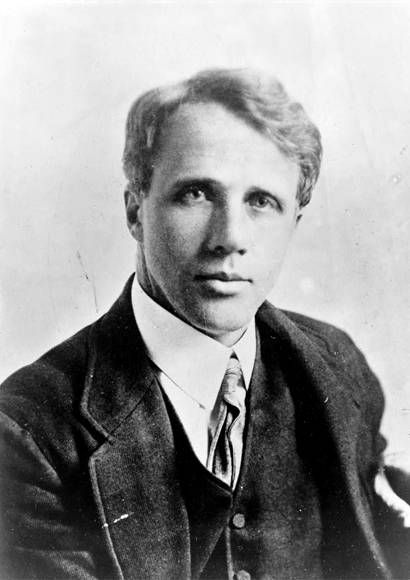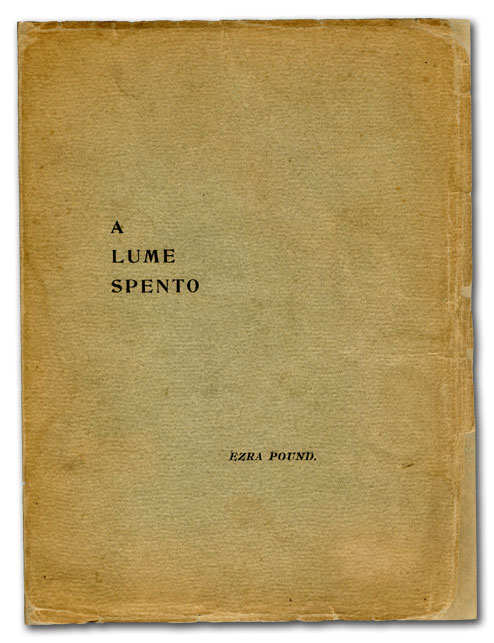|
Mountain Interval
''Mountain Interval'' is a 1916 poetry collection written by American poet Robert Frost. Published by Henry Holt, it is Frost's third poetic volume. Background The book was republished in 1920, and after making several alterations in the sequencing of the collection, Frost released a new edition in 1924. Five lyrics of the earlier collection were compiled next under the title "The Hill Wife". In this volume only three poems are written in dramatic monologue. Poems * "The Road Not Taken" * "Christmas Trees" * "An Old Man's Winter Night" * "The Exposed Nest" * "A Patch of Old Snow" * "In the Home Stretch" * "The Telephone Machine" * "Meeting and Passing" * "Hyla Brook" * "The Oven Bird" * "Bond and Free" * " Birches" * "Pea Brush" * "Putting in the Seed" * "A Time to Talk" * "The Cow in Apple Time" * "The Encounter" * "Range-Finding" * "The Hill Wife" * "The Bonfire" * "A Girl's Garden" * "Locked Out" * "The Last Word of a Blue Bird" * "Out, Out—" * "Brown's Descent, or the Wi ... [...More Info...] [...Related Items...] OR: [Wikipedia] [Google] [Baidu] |
Robert Frost
Robert Lee Frost (March26, 1874January29, 1963) was an American poet. His work was initially published in England before it was published in the United States. Known for his realistic depictions of rural life and his command of American colloquial speech, Frost frequently wrote about settings from rural life in New England in the early 20th century, using them to examine complex social and philosophical themes. Frequently honored during his lifetime, Frost is the only poet to receive four Pulitzer Prizes for Poetry. He became one of America's rare "public literary figures, almost an artistic institution".''Contemporary Literary Criticism''. Ed. Jean C. Stine, Bridget Broderick, and Daniel G. Marowski. Vol. 26. Detroit: Gale Research, 1983. p 110. He was awarded the Congressional Gold Medal in 1960 for his poetic works. On July 22, 1961, Frost was named poet laureate of Vermont. Biography Early life Robert Frost was born in San Francisco to journalist William Prescott Fros ... [...More Info...] [...Related Items...] OR: [Wikipedia] [Google] [Baidu] |
Henry Holt (publisher)
Henry Gartf Holt (January 3, 1840 – February 13, 1926), was an American book publisher and author. Life and career Henry Holt was born in Baltimore, Maryland, on January 3, 1840." He graduated from Yale University in 1862. After a year at Columbia Law School he married Mary Florence West and left school for work. He joined the publishing company of Frederick Leypoldt in 1866, which became Henry Holt and Company in 1873. Holt's company specialized in publishing and did not sell books at retail. He remained active in the company until about 1916. Seven years after his wife's death, he wed Florence Taber. Holt had 3 sons and 3 daughters. His son Roland Holt married famed dramatist Constance D'Arcy Mackay. In 1905, Henry Holt's daughters Edith and Winifred co-founded the New York Association for the Blind, now known as Lighthouse International. Edith continued to be active with this charity, which provided the opportunity for blind people to do useful work. In response to ... [...More Info...] [...Related Items...] OR: [Wikipedia] [Google] [Baidu] |
North Of Boston
''North of Boston'' is a collection of seventeen poems by Robert Frost, first published in 1914 by David Nutt in Great Britain. Most of the poems resemble short dramas or dialogues. It is also called a book of people because most of the poems deal with New England themes and Yankee farmers. Ezra Pound wrote a review of this collection in 1914. Despite it being called "North of Boston", none of the poems have that name. Background Following its success, Henry Holt and Company republished Frost's first book in the United States, '' A Boy's Will'', in 1915. ''The New York Times'' said in a review, "In republishing his first book after his second, Mr. Robert Frost has undertaken the difficult task of competing with himself."Staff review (November 21, 1915). ''A Boy's Will''. By Robert Frost (review) ''The New York Times'' List of poems * "The Pasture" (introductory poem) * "Mending Wall "Mending Wall" is a poem by the twentieth-century American poet Robert Frost (1874–1963) ... [...More Info...] [...Related Items...] OR: [Wikipedia] [Google] [Baidu] |
List Of Poetry Collections
A poetry collection is often a compilation of several Poetry, poems by one poet to be published in a single Volume (bibliography), volume or chapbook. A collection can include any number of poems, ranging from a few (e.g. the four long poems in T. S. Eliot's ''Four Quartets'') to several hundred poems (as is often seen in collections of haiku). Typically the poems included in single volume of poetry, or a cycle of poems, are linked by their style or Theme (narrative), thematic material. Most poets publish several volumes of poetry through the course their life while other poets publish one (e.g. Walt Whitman's lifelong expansion of ''Leaves of Grass''). The notion of a "collection" differs in definition from volumes of a poet's "Collected Poems (other), collected poems", "Selected Poems (other), selected poems" or from a anthology, poetry anthology. Typically, a volume entitled "Collected Poems" is a compilation by a poet or an editor of a poet's work that i ... [...More Info...] [...Related Items...] OR: [Wikipedia] [Google] [Baidu] |
Dramatic Monologue
Dramatic monologue is a type of poetry written in the form of a speech of an individual character. M.H. Abrams notes the following three features of the ''dramatic monologue'' as it applies to poetry: Types of dramatic monologue One of the most important influences on the development of the dramatic monologue is romantic poetry. However, the long, personal lyrics typical of the Romantic period are not dramatic monologues, in the sense that they do not, for the most part, imply a concentrated narrative. Poems such as William Wordsworth's ''Tintern Abbey'' and Percy Bysshe Shelley's ''Mont Blanc'', to name two famous examples, offered a model of close psychological observation and philosophical or pseudo-philosophical inquiry described in a specific setting. The conversation poems of Samuel Taylor Coleridge are perhaps a better precedent. The genre was also developed by Felicia Hemans and Letitia Elizabeth Landon, beginning in the latter's case with her long poem ''The Improv ... [...More Info...] [...Related Items...] OR: [Wikipedia] [Google] [Baidu] |
The Road Not Taken (poem)
"The Road Not Taken" is a narrative poem by Robert Frost, first published in the August 1915 issue of ''The Atlantic Monthly'', and later published as the first poem in the collection '' Mountain Interval'' of 1916. Its central theme is the divergence of paths, both literally and figuratively, although its interpretation is noted for being complex and potentially divergent. The first 1915 publication differs from the 1916 republication in ''Mountain Interval'': In line 13, "marked" is replaced by "kept" and a dash replaces a comma in line 18. Background Frost spent the years 1912 to 1915 in England, where among his acquaintances was the writer Edward Thomas. Thomas and Frost became close friends and took many walks together. One day, as they were walking together, they came across two roads. Thomas was indecisive about which road to take, and in retrospect often lamented that they should have taken the other one. After Frost returned to New Hampshire in 1915, he sent Thomas ... [...More Info...] [...Related Items...] OR: [Wikipedia] [Google] [Baidu] |



